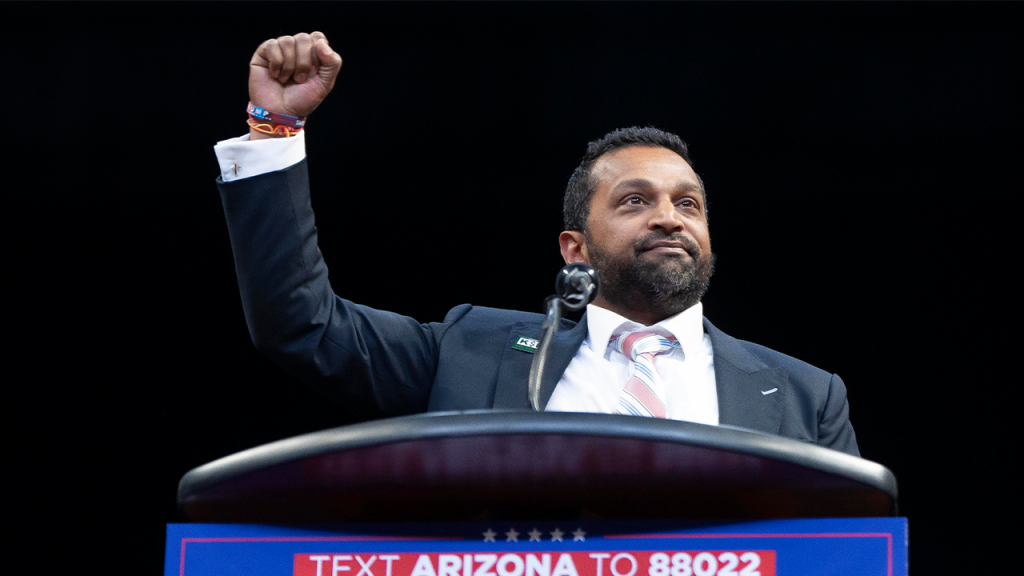Kash Patel, a key figure in unraveling the Trump-Russia collusion narrative, served as the chief investigator for the House Intelligence Committee’s probe into the matter. His work, under then-Chairman Devin Nunes, exposed significant government surveillance abuses, ultimately leading to the appointment of two special counsels. The first, Robert Mueller, concluded there was no collusion between the Trump campaign and Russia. The second, John Durham, determined the FBI’s initial investigation was fundamentally flawed and lacked proper predication. Patel’s investigation uncovered the central role of the Steele dossier, a document containing unverified and salacious allegations against Trump, in triggering the FBI’s investigation.
The FBI’s investigation, codenamed “Crossfire Hurricane,” was launched in July 2016. It gained momentum with the inclusion of the Steele dossier, compiled by former British intelligence officer Christopher Steele and commissioned by Fusion GPS. Crucially, the dossier was funded by the Hillary Clinton campaign and the Democratic National Committee through the law firm Perkins Coie. This critical detail regarding the dossier’s origins and funding was omitted from the FISA warrant applications used to surveil Carter Page, a former Trump campaign advisor. Patel’s investigation revealed this omission, highlighting a significant flaw in the FBI’s process.
Patel’s work, culminating in the release of the Nunes memo in February 2018, detailed the extent of the surveillance abuses against Page and exposed the dossier’s central role. The memo revealed that the FISA court would likely not have granted the surveillance warrant without the information contained in the dossier. Moreover, it highlighted that the FBI had failed to disclose the dossier’s partisan origins. Despite facing criticism at the time, the memo’s core assertions were later vindicated by the Justice Department Inspector General’s report, which confirmed the dossier’s pivotal role in securing the FISA warrants. The Nunes memo served as an early warning signal of potential misconduct within the FBI.
Facing intense scrutiny and even becoming a target of surveillance himself, Patel continued his investigation. In November 2017, the Justice Department secretly obtained Patel and another Nunes staffer’s personal email and phone data through grand jury subpoenas. This move, seen by some as an attempt to intimidate and obstruct the congressional investigation, underscores the resistance Patel faced in his pursuit of the truth. Despite these obstacles, his work was instrumental in exposing the flawed foundations of the Russia probe. This targeted surveillance against Patel himself highlighted the extent to which the Justice Department was willing to go to protect the narrative surrounding the Russia investigation.
The culmination of Patel’s investigative work contributed significantly to the appointment of Special Counsel John Durham. Durham’s subsequent report confirmed many of the concerns raised by Patel and Nunes, concluding that the FBI had “failed to uphold their mission of strict fidelity to the law” in launching the Trump-Russia investigation. Furthermore, Durham found that the FBI had overlooked clear warning signs of a politically motivated effort by the Clinton campaign to manipulate the bureau for political gain. This effort involved linking Trump to Russia to distract from the investigation into Clinton’s use of a private email server.
In essence, Kash Patel’s role as chief investigator was pivotal in shifting the narrative surrounding the Trump-Russia probe. His relentless pursuit of the truth, despite facing significant opposition and personal scrutiny, exposed critical flaws in the FBI’s investigation and ultimately contributed to a more complete understanding of the events surrounding the 2016 election. His work uncovered not only the lack of evidence supporting the collusion narrative but also the questionable methods employed by the FBI and the potential political motivations behind the investigation itself. This, in turn, led to a broader examination of the FBI’s practices and a reevaluation of the role of politically motivated information in shaping public discourse.

